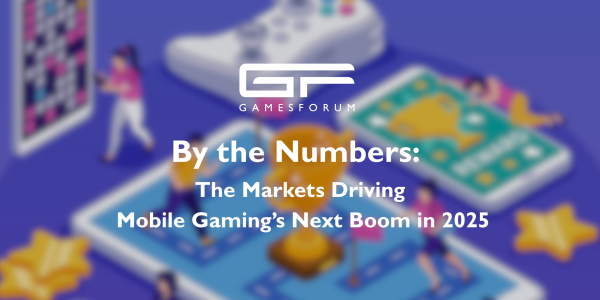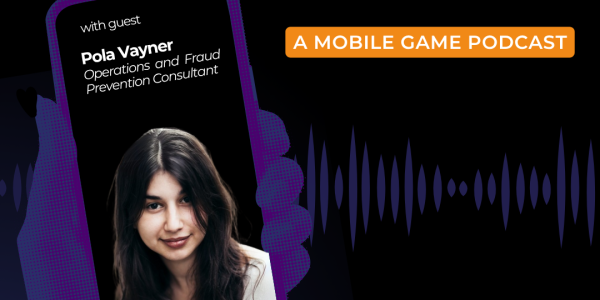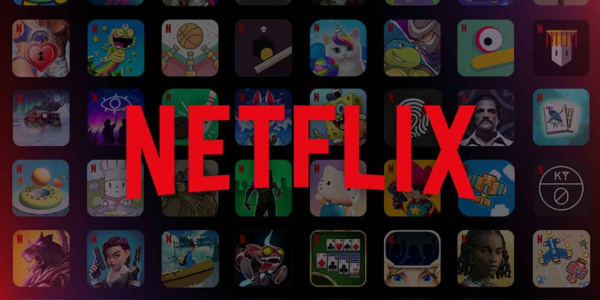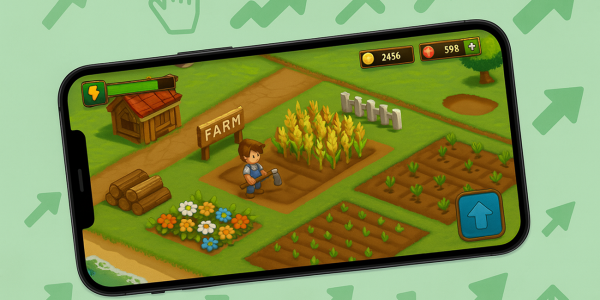Redefining Play: How ZBD is Turning Games into Real Economies
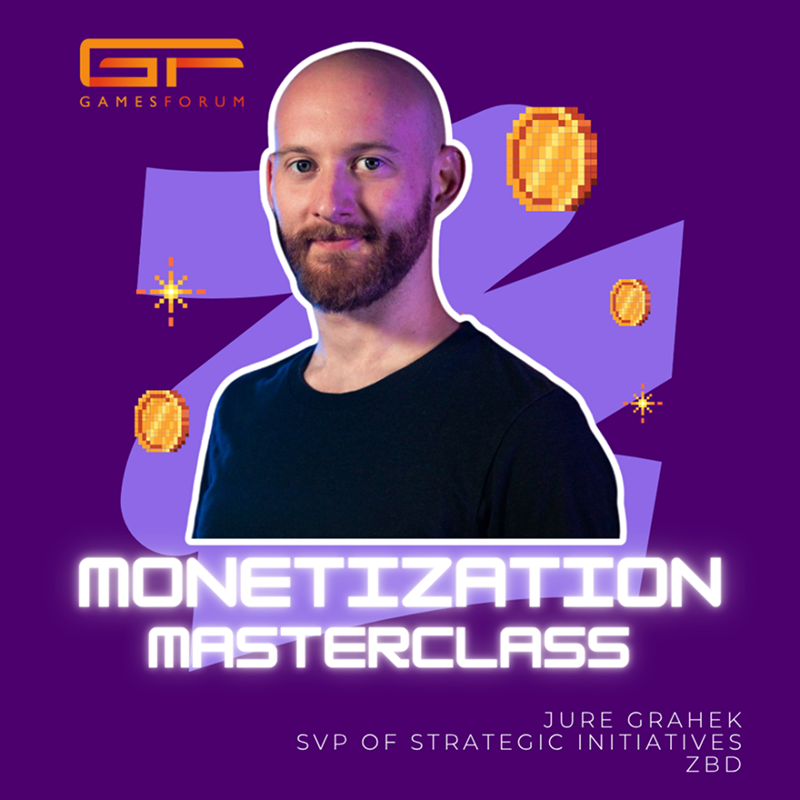
In this Monetization Masterclass, Jure Grahek, Chief Marketing Officer at ZBD, explores how the rise of real-time digital payments is reshaping the way we think about games and value. He explains why systems like the Bitcoin Lightning Network make it possible to process instant micropayments: transactions smaller than a cent, on a global scale. The discussion goes beyond technology, focusing on how attaching real-world value to in-game actions challenges long-standing assumptions that digital economies are “not real,” and what this shift could mean for players, developers, and the future of online play.
How do you make long-term strategic bets when the foundational tech, like the Lightning Network, is still evolving?
Long-term strategy is focused on value propositions and serving the market’s needs. In our case it’s also a bit of predicting future needs, which is really the exciting part for me. Because we’re building payments tools that didn’t exist before - processing instant nanotransactions (smaller than a cent) instantly, globally and at scale.
To build for the future, you need to use the tools of the future. We couldn’t build our payments system on top of traditional finance. And we sure as hell weren’t going to build it on top of a random crypto token. That would massively undermine what we’re trying to achieve in terms of scalability and trust. So if dollars don’t work well enough, what does? The answer is Bitcoin Lightning. In the world of digital currencies, Bitcoin is money. Everything else is… trying to be money and succeeding with various degrees of success, but not to the point of enterprise viability. Stablecoins are also a very promising avenue, but for all the hype around them, Bitcoin is miles ahead in terms of adoption and regulation.
Of all the concerns and challenges we face, the technical feasibility of using the Lightning Network is not one of them. It definitely does present challenges in the market, but not technical ones. And a last note on the point that the Lightning Network is still evolving: yes, it is, but we are the ones at the forefront of evolving it. I’d much rather place my faith in a payments system we can have a hand in developing than something that is controlled by gatekeepers outside of our control (meaning the entire fiat system, as well as most cryptocurrencies that are maintained by a form of foundation or somewhat centralized entity).
What assumptions about money, value, or gameplay is ZBD explicitly challenging or rejecting?
We reject the idea that value in games should be siloed in closed ecosystems. Players already create value through their time, attention and skill, but most of that value goes unrecognized in a meaningful real-life way. ZBD challenges the assumption that value earned in a gameplay stays locked inside of it. We have proven that games can be economies, where in-game currencies and achievements have meaning beyond the game itself. That doesn’t mean turning a game into a job - it means giving players optional, real-world utility for what they already do. When value is portable, programmable and interoperable, it opens up new possibilities for how games are played and monetized.
We are living in a digital reality, but digital economies are somehow not considered real. Which is really ridiculous when you look at the size of economic activity in things like Eve Online or Roblox. But not that ridiculous when you realize that in a practical sense, these economies truly are not real. Because they don’t use real money, just representations of it. Robux are not money, meaning it’s not truly value that you own. You can’t send them to another player easily, or load them onto a debit card and buy some groceries. Making them money was not possible before, because there was no provider that could offer that service - it’s not just about the tech and economics, but also about compliance, fraud controls, security, banking relationships, etc. Working with real money is complicated. ZBD is taking on that complexity to enable games to use it simply and, essentially, transform digital economies from representations of an economy, to an actual one.
Is integrating real-time payments into games enhancing the experience - or redefining what a game even is?
Depends on how far the integration goes. Right now, we’re seeing a boom in “rewarded gaming” in the mobile space. Earning rewards from a game is a cool way to enhance the user experience, as well as a proven way for publishers to improve user engagement and profitability. It’s essentially a revenue share with the user, which in turn motivates them toward generating even more revenue, so everyone profits. But it’s not really redefining what a game is, it’s a relatively simple use of payments in games, but an important one to develop the market for more advanced use cases.
What we’re trying to build at ZBD is a much wider proposition of making money work in games as smoothly as every single other element - audio, video and data of all kinds interact with the player so seamlessly, we don’t even think about it. Tap a button and your character moves? Of course it does. Tap a button and send real money to the friend you’re playing with, so they can buy a booster right in that exact moment? Not so fast!
But today, money IS information. It’s just handled with so many gatekeepers, checks and balances that it’s hard to implement in a dynamic environment like a game at the same seamless level as other types of information. That’s what we’re solving.
Will this change what a game even is? Perhaps. If all the money in Eve Online is real money, does that redefine what that entire experience is? Will we have people making a living as full-time in-game merchants, mining resources and selling them? Maybe, but we’re far from that. And honestly don’t need to concern ourselves with it too much - players will accept what they like and reject what they don’t. Our interest is innovation and unlocking creativity around how money works in games. Once money integration on a game-native level becomes easier, there’s a lot of very creative people in this industry that will certainly figure out some crazy ideas around what to do with that.
We couldn’t build our payments system on top of traditional finance. And we sure as hell weren’t going to build it on top of a random crypto token. That would massively undermine what we’re trying to achieve in terms of scalability and trust. So if dollars don’t work well enough, what does? The answer is Bitcoin Lightning.
What’s been the most credible argument against ZBD’s model, and how do you address it internally?
On the rewarded gaming side, the most credible argument is that mainstream players won’t care about earning a few cents and therefore this system won’t scale. And we get that. But we’ve seen that it’s not about the amount - it’s about the feeling. That instant, real connection between effort and reward, that’s what drives behavior.
Internally, we’re constantly testing that assumption: How does real value, even in tiny amounts (users can get or spend as little as one tenth of a cent), change engagement? What design patterns actually move the needle? We’ve seen over and over that when it’s frictionless and real, players care. They come back. They stay longer. The real challenge isn’t interest, it’s execution. That’s why we obsess over infrastructure: fraud mitigation, payout tooling, compliance. The less the developer has to think about this being real payments, the more powerful the model becomes.
The argument that comes up the most, but in my view isn’t credible, is around Bitcoin as the underpinning payment rail. More on that in the next question!
Where do you see the greatest friction, not technical, but cultural or economic, in getting players and developers to adopt this system?
There’s still cultural baggage around Bitcoin. Some developers hear “Bitcoin” and immediately think of scams or speculative tokens. Players too - many were burned by crypto projects that overpromised and underdelivered. So the initial friction isn’t technical, it’s emotional.
But Bitcoin and the Lightning Network are just the rails underneath. They power the instant, near-zero fee payments that underpin our entire value proposition. Once they get over the initial aversion, our partners and players realize it’s really not about Bitcoin itself, it’s just a tool and they can cash out however they like, whether that’s gift cards or direct cash payouts in their local currency through apps like CashApp or their regional equivalent.
Are you building ZBD to ride Bitcoin’s momentum, or to survive and grow even if Bitcoin’s mainstream adoption stalls?
We’re building ZBD to grow no matter what happens with bitcoin hype. Bitcoin is the best infrastructure available right now - open, fast, global - but we’re not here to sell bitcoin. We’re here to make real-time value transfer a native part of digital experiences.
If mainstream adoption stalls, our model still works. We’ve seen this through the ups and downs of the bitcoin price cycle over the past five and a half years of our existence. Players still want rewards that feel real. Developers still want tools that boost retention and engagement. In-game reward prices can be fixed in a dollar or any other currency, rather than in bitcoin. And the infrastructure we use can evolve, just like we do. This isn’t a bet on a coin. It’s a long-term play on how value flows across digital ecosystems.
What strategic misstep by a competitor has reinforced confidence in your direction?
The biggest misstep we’ve seen is trying to bolt tokens or speculative mechanics onto games. It turns into a distraction at best, and at worst, it breaks the game. Players feel it. Developers feel it. The systems often look good on paper but fall apart when the incentives distort the way the game is meant to be played. The entire Web3 narrative has brought nothing but trouble to the gaming industry. So we look at that entire sector as a misstep, which was able to take way too much ground through a combo of people not understanding the complexities of actual finance and economics, plus a whole lot of greed. You can’t just pull money from thin air over a long period of time, any system like that will always collapse.
That’s why we’ve taken the opposite path. We focus on enhancing what’s already working, not reinventing it. No token launches, no forced economies. Just seamless infrastructure that plugs into existing games and makes them more engaging, more rewarding and more valuable. The lesson is simply - don’t lead with hype, lead with utility.
If you had to scrap the current roadmap and start over, what part of the thesis would remain untouched?
The core idea that games are economies. Players create real value with their time, attention, and skill and that value should be recognized, portable and usable beyond a single title.
Even if we had to start from scratch, that part wouldn’t change. We’d still be building ways to attach real-world value to in-game activity, and tools that let developers tap into that loop without friction. But the idea that value (money) should move as freely as information within digital environments stays exactly the same.
We’d for sure start a bit more realistic though. In the early days of ZBD, we built super cool proof of concept projects - like Bitcoin inside CS:GO, including direct peer to peer payments when you shoot someone and 3D coins injected into the game that carry real value. The problem is, it was way too early for integrations like that. It was cool, but the market didn’t want it. Today, we’re more realistic and focused on market needs. But no doubt we’ll end up powering very similar deep integrations with AAA games like the CS:GO PoC described above.



